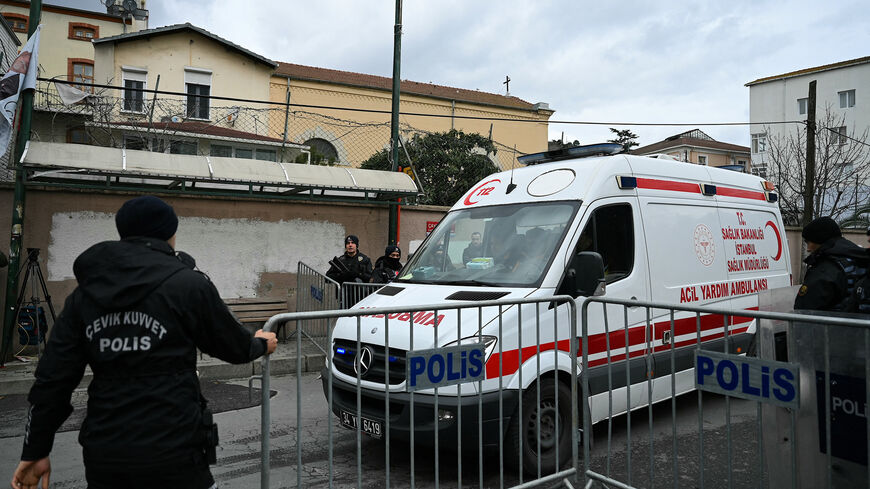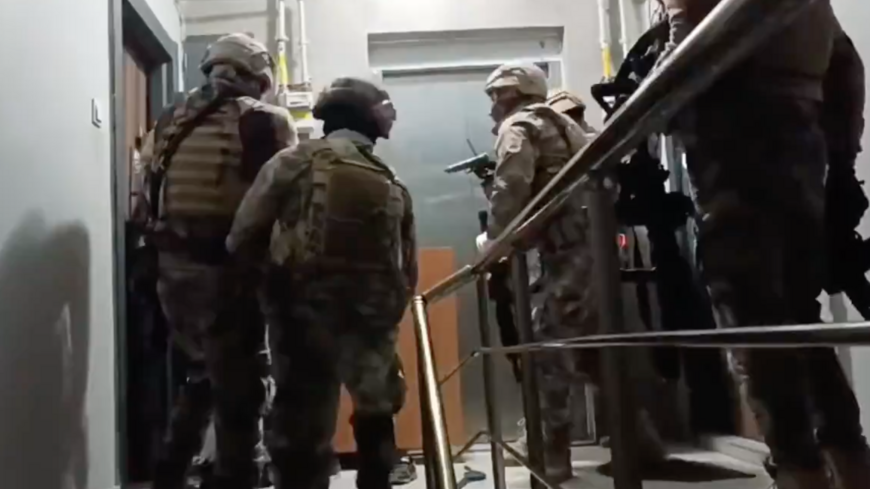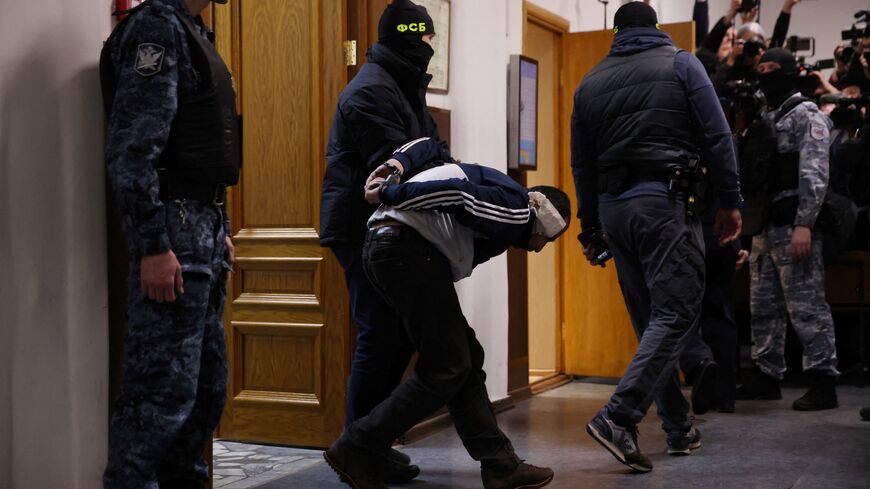Turkey expands ISIS crackdown, detains over 100 in a week
Eight more people were detained on Monday in a raid on individuals who were allegedly planning to carry out a bomb attack.

ANKARA — Turkish police detained eight more people in Istanbul on Monday for alleged ties to the Islamic State militant group (ISIS), bringing the total number of detentions to more than 100 within a week.
Turkey’s Interior Minister Ali Yerlikaya said that among the detainees was an individual identified only by the initials K.A., who was allegedly planning a bomb attack within Turkey.
Chemical substances seized during a raid at the suspect's apartment in Istanbul’s Beykoz district "were capable of causing large-scale explosions," Yerlikaya said.
He identified the remaining seven suspects as individuals who were connected to K.A.
The suspects intended to carry out a bomb attack in Istanbul during the May 1 workers' day demonstrations in Istanbul, Turkish public broadcaster TRT said. The report identified K.A. as a Syrian national who previously received explosives training in Syria. Another suspect — identified by his initials, M.H. — is an Afghan national, according to the TRT.
With Monday’s operation, the number of people caught over alleged ties to ISIS rose to 105 within a week. There have been four separate operations since April 21 conducted in nearly 20 Turkish provinces across the country's western, southeastern and central regions, including in the Aegean port province of Izmir, the central Anatolian province of Kayseri and the southeastern province of Hatay along the Syrian border.
Turkey has ramped up operations against the Sunni extremist group since its attacks on a Roman Catholic Church in Istanbul in January and the Crocus City Hall attack in Moscow on March 22 that left nearly 150 people dead.
Analysts believe that ISIS's Khorasan branch, or ISIS-K, played a part in both attacks, highlighting the Central Asian background of the attackers in both assaults.
ISIS-K largely operates through Central Asian fighters, particularly Tajik nationals.
On April 6, Turkey revoked its visa exemption agreement with Tajikistan, preventing Tajik nationals from traveling to the country without a visa.
Turkish authorities have refrained from clarifying whether the 105 detainees rounded up within the last week were Turkish nationals or foreigners.
Ali Burak Daricili, a retired Turkish intelligence official, believes the latest crackdown is connected to the rise of ISIS-K through its attacks in Moscow and Istanbul.
Pointing to the threats ISIS-K is leveling against Turkey along with European capitals in its publications, Daricili told Al-Monitor, “In response to these, the security and intelligence establishment in Turkey is pursuing a highly aggressive pressure policy.”
The crackdown is aimed at preventing the militant extremist group from gaining the slightest organizational foothold in Turkey, Daricili said.
Over the past 10 months, Turkish authorities have caught more than 3,000 suspects in nearly 1,500 operations conducted against the suspected ISIS network in Turkey.
Among the suspects, 718 were arrested while 566 were released under judicial control, as stated by Yerlikaya last Thursday.
The shootout at the Istanbul church on Jan. 28, which killed one churchgoer, marked the extremist militant group’s first attack in Turkey in seven years. ISIS carried out more than a dozen attacks across the country between 2013 and 2017, including a suicide bombing at a peace rally in Ankara that killed more than 100 people and wounded 500, marking the bloodiest attack in the country’s history.
This article has been updated since its initial publication to include Daricili’s comments.









